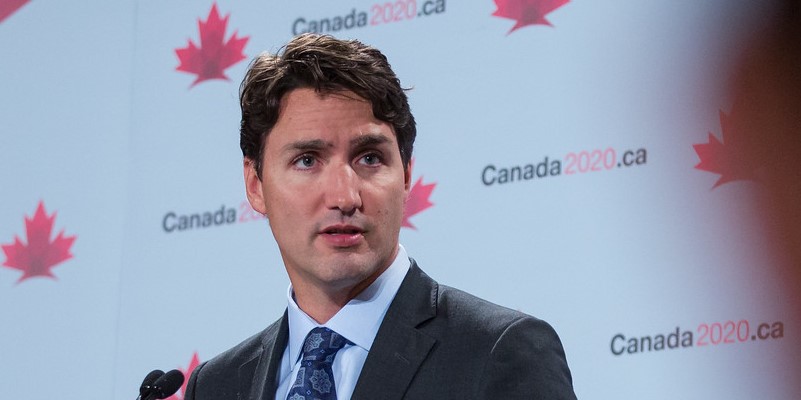Energy
You need to know – Climate Change and the Future of Energy

Todayville hunts for information that cuts through politics and ideologies. We’re a lot more interested in sharing in depth views than we are about screaming (and misleading) headlines. Here’s an excellent example. This video podcast interview is an absolute must-see for all those Canadians who want to know the truth about the future of energy production. Turns out carbon based energy production isn’t as bad as we thought, and some of the renewables aren’t nearly as good as we thought. No matter which side of this debate you’re on you need to know what Michael Shellenberger is saying.
From Forbes.com (Michael Shellenberger is a regular contributor of articles on energy.) “Michael Shellenberger is a Time Magazine “Hero of the Environment,” Green Book Award Winner, and author of Apocalypse Never: Why Environmental Alarmism Hurts Us All (Harper Collins, June 30, 2020). He is a frequent contributor to The New York Times, Washington Post, Wall Street Journal, Scientific American, and other publications. His TED talks have been viewed over five million times.”
This video podcast is the second edition of a new offering from Robert Bryce called the Power Hungry Podcast. The Power Hungry podcast spotlights energy, power, innovation, and politics. Author and journalist Robert Bryce talks with top thinkers, writers, and influencers — as well as regular citizens.
In the second edition of the Power Hungry podcast, Robert Bryce talks with Michael Shellenberger about his new book, Apocalypse Never: Why Environmental Alarmism Hurts Us All. Michael is one of the most famous environmentalists in America as well as a former candidate for governor of California. He and Robert discuss a myriad of topics including liberation theology, the roots of apocalyptic environmentalism, and why nuclear reactors, not wind turbines and solar panels, are the only viable path forward if we are going to reduce greenhouse gas emissions and preserve natural areas for people and wildlife.
Here’s one of the comments from a viewer of this video.
“I am unacceptably right wing, but I agree with everything this guy is saying about renewables, nuclear, & energy policy in general.”
Economy
Extreme Weather and Climate Change

From the Fraser Insitute
Contrary to claims by many climate activists and politicians, extreme weather events—including forest fires, droughts, floods and hurricanes—are not increasing in frequency or intensity, finds a new study published today by the Fraser Institute, an independent, non-partisan Canadian public policy think-tank.
“Earth Day has become a time when extraordinary claims are made about extreme weather events, but before policymakers act on those extreme claims—often with harmful regulations—it’s important to study the actual evidence,” said Kenneth Green, a senior fellow with the Fraser Institute and author of Extreme Weather and Climate Change.
The study finds that global temperatures have increased moderately since 1950 but there is no evidence that extreme weather events are on the rise, including:
• Drought: Data from the World Meteorological Organization Standardized Precipitation Index showed no statistically significant trends in drought duration or magnitude—with the exception of some small regions in Africa and South America—from 1900 to 2020.
• Flooding: Research in the Journal of Hydrology in 2017, analyzing 9,213 recording stations around the world, found there were more stations exhibiting significant decreasing trends (in flood risk) than increasing trends.
• Hurricanes: Research conducted for the World Meteorological Organization in 2019 (updated in 2023) found no long-term trends in hurricanes or major hurricanes recorded globally going back to 1980.
• Forest Fires: The Royal Society in London, in 2020, found that when considering the total area burned at the global level, there is no overall increase, but rather a decline over the last decades. In Canada, data from Canada’s Wildland Fire Information System show that the number of fires and the area burned in Canada have both been declining over the past 30 years.
“The evidence is clear—many of the claims that extreme weather events are increasing are simply not empirically true,” Green said.
“Before governments impose new regulations or enact new programs, they need to study the actual data and base their actions on facts, not unsubstantiated claims.”
- Assertions are made claiming that weather extremes are increasing in frequency and severity, spurred on by humanity’s greenhouse gas emissions.
- Based on such assertions, governments are enacting ever more restrictive regulations on Canadian consumers of energy products, and especially Canada’s energy sector. These regulations impose significant costs on the Canadian economy, and can exert downward pressure on Canadian’s standard of living.
- According to the UN IPCC, evidence does suggest that some types of extreme weather have become more extreme, particularly those relating to temperature trends.
- However, many types of extreme weather show no signs of increasing and in some cases are decreasing. Drought has shown no clear increasing trend, nor has flooding. Hurricane intensity and number show no increasing trend. Globally, wildfires have shown no clear trend in increasing number or intensity, while in Canada, wildfires have actually been decreasing in number and areas consumed from the 1950s to the present.
- While media and political activists assert that the evidence for increasing harms from increasing extreme weather is iron-clad, it is anything but. In fact, it is quite limited, and of low reliability. Claims about extreme weather should not be used as the basis for committing to long-term regulatory regimes that will hurt current Canadian standards of living, and leave future generations worse off.
Author:
The Fraser Institute is an independent Canadian public policy research and educational
organization with offices in Vancouver, Calgary, Toronto, and Montreal and ties to a global
network of think-tanks in 87 countries. Its mission is to improve the quality of life for Canadians,
their families and future generations by studying, measuring and broadly communicating the
effects of government policies, entrepreneurship and choice on their well-being. To protect the
Institute’s independence, it does not accept grants from governments or contracts for research.
Visit www.fraserinstitute.org
Economy
Federal government remains intransigent on emissions cap despite dire warnings of harm

From the Fraser Institute
In the face of heavy opposition from Canada’s premiers to Prime Minister Trudeau’s carbon tax, one might have hoped that the prime minister would moderate some of his government’s extreme climate policies. But alas, on a recent swing through Alberta, he threw cold water on any hope of moderation.
When asked in a meeting with a who’s who of Alberta’s energy sector if he might drop the forthcoming cap on greenhouse gas emissions specific to the oil and gas industry, Trudeau reportedly replied “not a chance.” That’s a shame, because it was an opportunity for Canada (and Alberta) to dodge another bullet aimed at its economic heart, and an opportunity to reduce some of the rancor between the West and Ottawa.
And in fact, there are many good reasons to drop the GHG cap.
In a recent report, the Conference Board of Canada estimated oil and gas production cuts due to the cap would lead to a permanent decline in Canada’s real GDP of between 0.9 per cent (the report’s most likely outcome) to 1.6 per cent (its least likely outcome) relative to the baseline in 2030. Which means a loss of $22.8 billion to $40.4 billion in 2012 dollars. In Alberta, real GDP by between 3.8 per cent and 6.7 per cent (or $16.3 billion to $28.5 billion). These are devastating impacts, hand-waved away by the prime minister.
Moreover, the report estimates total employment declines nationally by between 82,000 and 151,000 in 2030. A large part of this unemployment will land in Alberta where the report estimates total employment in the province would decline by between 54,000 and 91,500 jobs. And between 2030 and 2040, employment in Alberta will be between 66,300 and 102,600 lower per year (on average). Again, these are huge economic damages disregarded by the prime minister.
Lastly, as shown in a 2023 study published by the Fraser Institute, even if the proposed cap achieved the emissions reductions government predicts, the reduction would equal four-tenths of one per cent of global emissions, a reduction unlikely to have any impact on the climate in any detectable manner, and hence, to offer only equally undetectable environmental, health or safety benefits.
The Conference Board report, and other studies of the likely high costs and non-existent climate benefits of the pending cap on oil and gas emissions, would offer cover for the prime minister if he backed away from what’s clearly an ill-considered climate policy poised to wreak massive economic harms to Canada, particularly in the West. Apparently, however, he’s unwilling to acknowledge reality and change course.
Author:
-

 Economy8 hours ago
Economy8 hours agoExtreme Weather and Climate Change
-

 Jordan Peterson1 day ago
Jordan Peterson1 day agoJordan Peterson slams CBC for only interviewing pro-LGBT doctors about UK report on child ‘sex changes’
-
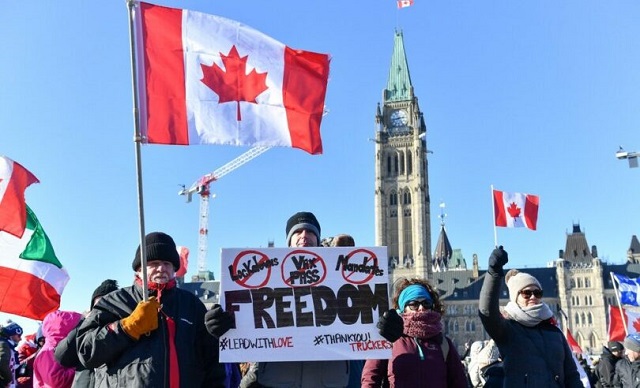
 Freedom Convoy1 day ago
Freedom Convoy1 day agoTrudeau’s use of Emergencies Act has cost taxpayers $73 million thus far
-
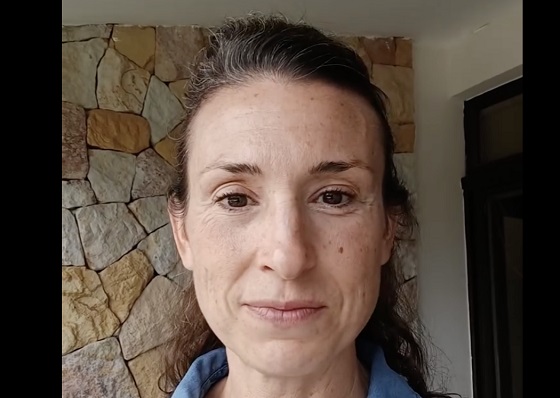
 COVID-192 days ago
COVID-192 days agoPro-freedom Canadian nurse gets two years probation for protesting COVID restrictions
-
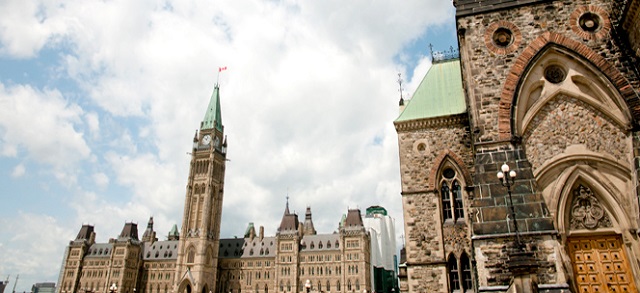
 Economy2 days ago
Economy2 days agoMassive deficits send debt interest charges soaring
-
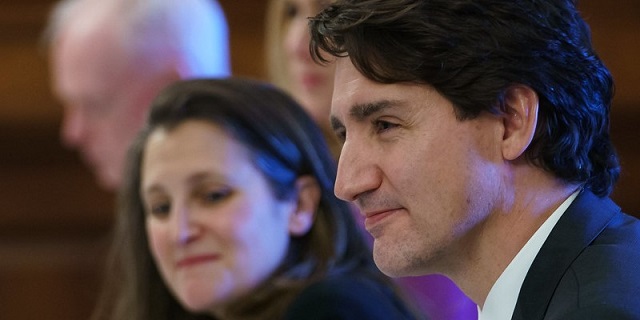
 Economy2 days ago
Economy2 days agoFederal budget’s scale of spending and debt reveal a government lacking self-control
-

 Business1 day ago
Business1 day agoBusiness investment key to addressing Canada’s productivity crisis
-
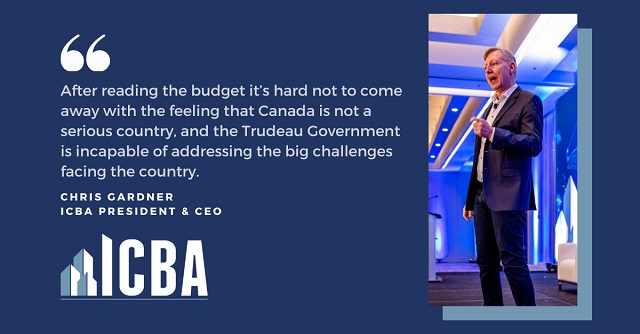
 Business1 day ago
Business1 day agoDoubling Down on Missing the Mark



